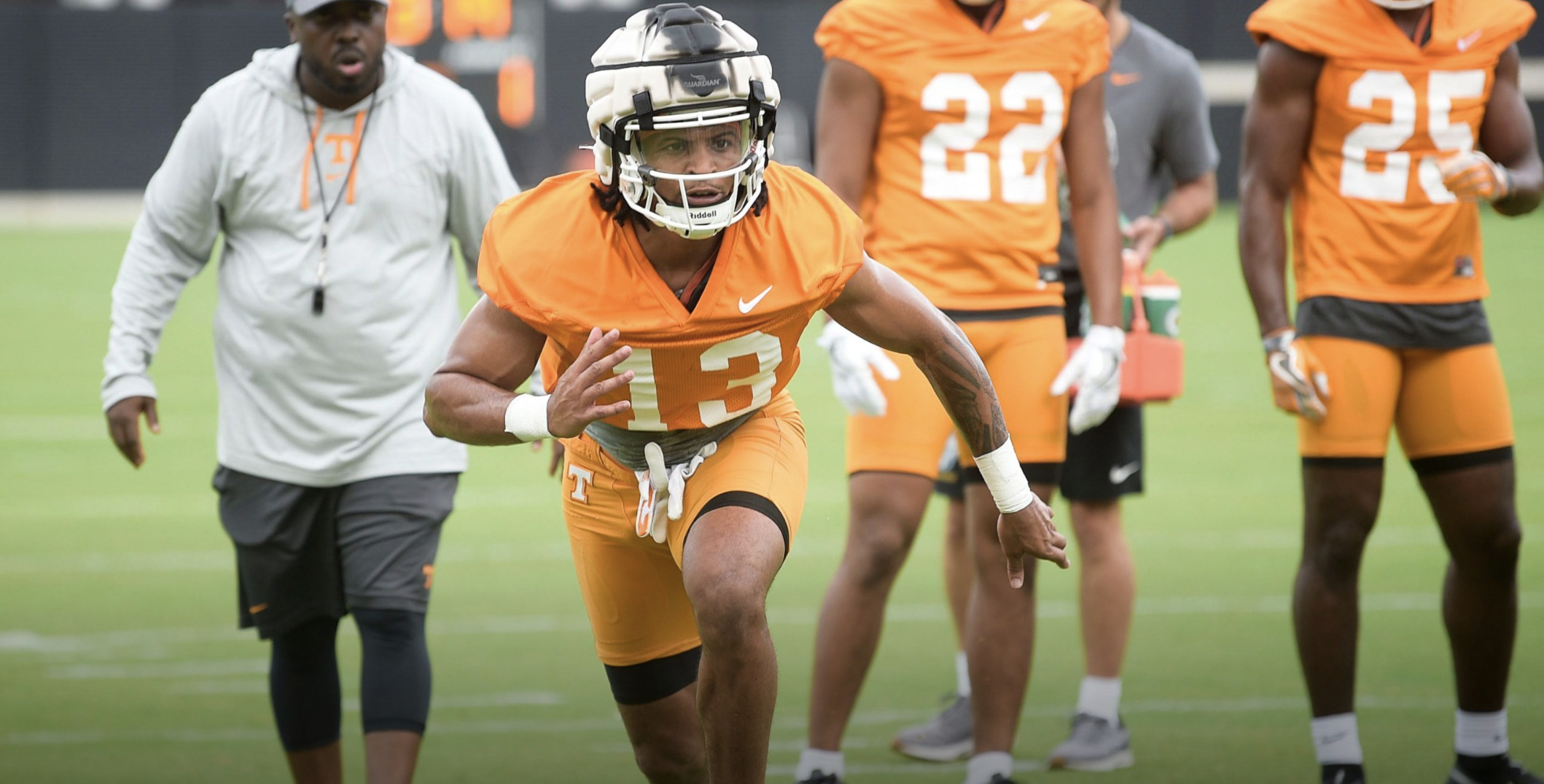Tennessee’s beleaguered secondary suffered a blow when starting cornerback Warren Burrell had season-ending surgery on an upper body part.
That’s not good news for a unit that already ranks last in the SEC in pass defense (allowing 309.3 yards per game).
The immediate impact of Burrell’s loss was on display against Florida, which passed for 453 yards.
The season-long impact is harder to quantify.
Tennessee can use all the help it can get in the secondary. But even with Burrell, the defensive backs weren’t exactly stifling opposing passers from Power 5 schools.
Pitt threw for 274 yards and played the second half with a backup quarterback. Burrell played in that game but missed the last two due to injury before his surgery.
Tennessee linebackers coach Brian Jean-Mary said the pass defense woes don’t point to just on the defensive backs. He said the pass rush and linebackers must help in pass coverage as well.
As he pointed out the other day, “I thought I was a good defensive back in high school, then I realized Warren Sapp was rushing the passer.”
It might be true that a good pass defense is a good pass rush. But if you don’t have a Sapp or an Aaron Donald or a Von Miller rushing the passer, then you better have some defensive backs that can cover.
And those seem to be in short supply at Tennessee.
The Vols have 23 defensive backs on the roster, seven of whom are walk-ons. They have transfers from Alabama, Auburn, Georgia Tech and Ohio State. They have six who have been in the program at least three years.
Yet, they couldn’t keep up with Florida receivers much better than they did against Purdue (534 pass yards) in the Music City Bowl last year.
LSU quarterback Jayden Daniels won’t remind anybody of Joe Burrow with his passing skills – he was 8-of-20 against Auburn. But if the Tigers receivers run free in the secondary, Daniels could have a career day like Florida’s Anthony Richardson did Sept. 24 in Neyland Stadium.
Some might suggest that UT’s pass defense struggles are related to Tennessee’s up-tempo offense.
While a hurry-up offense can put a defense in harm’s way, that was not the case against Florida.
A fast-pace offense puts the defense at risk when it scores or punts quickly, or adds two to four extra possessions per game, leaving the defense on the field for an extra 15 to 20 plays.
But against Florida, UT had just nine possessions (the fewest in the Hosh Heupel era) and only one quick possession. It had drives of 7, 10, 8 and 12 plays in the first half, allowing ample rest for the defense. The Vols had drives of 9, 5, 10 and 7 plays in the second half. UT also scored on six of those nine possessions, allowing more time for a defense to catch its breath.
Florida had 10 possessions, stealing one when it recovered an onside kick in the final seconds.
So you can’t blame Tennessee’s defensive deficiencies against Florida on UT’s hurry-up offense.
You can blame it on poor pass coverage and the inability to get off the field. Florida was 7-of-15 on third downs and 5-of-6 on fourth downs. The Gators had nine drives of at least six plays, seven of at least eight plays.
It doesn’t do a defense any good to get a third-down stop if the opponent converts on fourth down.
The inability to cover receivers doesn’t appear to be a scheme problem or coaching problem. It appears to be a talent problem. And that is a huge concern heading into Saturday’s noon ET kickoff at LSU.
Can you name a UT defensive back that you feel is a lock-down defender, someone who could guard a Cedric Tillman or Jalin Hyatt man-to-man?
If given time, Daniels can hit open receivers. And his mobility puts additional pressure on a secondary.
A secondary that is without a starter and ranks last in the SEC in pass defense.
That means two things if you’re Tennessee:
- You better blitz to pressure Daniels and contain him in the pocket.
- You better score a ton of points.
All of which could make for an entertaining Saturday from the bayou.









